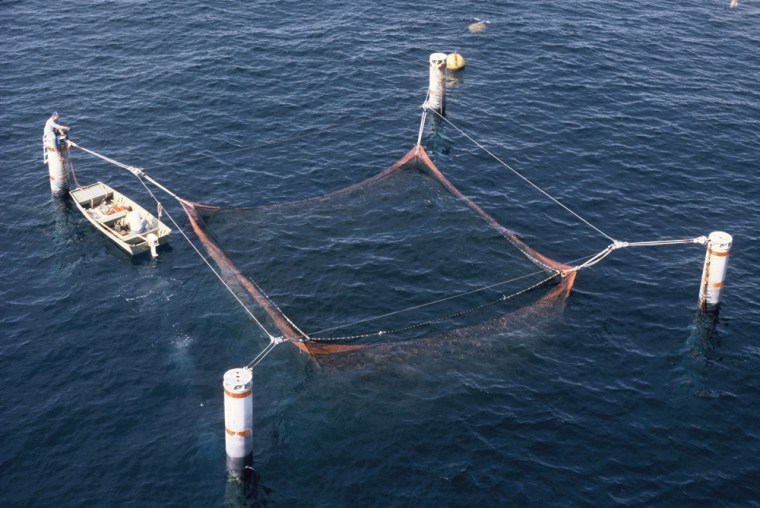President Barack Obama's administration on Thursday allowed fish farming in federal waters of the Gulf of Mexico, a move criticized by environmentalists fearful of pollution and threats to wild stocks.
The National Oceanic and Atmospheric Administration declined to oppose the plans, but said it would work to make sure future farms in the Gulf are clean and safe. The agency also said it would push to develop a national policy for offshore aquaculture, a practice of raising fish in large pens and cages.
"We are interested in aquaculture done correctly," said Jim Balsiger, the acting NOAA assistant administrator for fisheries.
Still, it could be months or even years before fish farms sprout in the Gulf.
The Gulf of Mexico Fishery Management Council, one of eight regional boards that oversee fishing in U.S. waters, earlier supported the idea of fish farms but needs to draw up regulations and federal regulators must approve them.
"Our council did a thorough job of looking at all the implications of aquaculture in the Gulf," said Rick Leard, the deputy executive director of the Gulf council.
Balsiger said the Gulf's regulations would also have to abide by national guidelines the agency hopes to draw up within months.
"A national framework will be a higher level document, it will stress environmentally friendly aquaculture, a clear permitting process," Balsiger said. But he said there would most likely be "very few differences between the national plan and the Gulf of Mexico plan."
Priority to produce
Producing more seafood under stringent U.S. guidelines would help the nation, he said.
"Eighty percent of the seafood we eat is imported, and about half of that is farmed," Balsiger said. "We have no control over the circumstances under which that seafood is produced, we have no control over what happens to the environment in the other parts of the world where that seafood is produced."
The National Fisheries Institute, a national seafood industry group based in McLean, Virginia, praised NOAA's decision.
"Safe and effective fish farming serves as a compliment to wild capture fisheries, acting as a release valve that takes pressure off stocks while still providing Americans with healthy affordable seafood," the group said in a statement.
Environmentalists called NOAA's decision misguided.
"The risks of escaped fish, fish waste, release of drugs and chemicals, and perhaps most importantly, the proliferation of disease simply cannot be adequately addressed by a piecemeal approach," said George Leonard, an expert on aquaculture at the Ocean Conservancy.
Congress, he said, needs to put national standards in place.
Glen Brooks, the president of the Gulf Fishermen's Association, said by telephone from a boat yard in Cortez, Florida, that fishermen have mixed feelings about raising fish offshore.
"It's split 50/50," Brooks said. "Some of them look at it like an opportunity for new jobs, some of them feel like they don't want the competition."
"It's all about how well they regulate it, and whether or not they stay off of our traditional fishing grounds," Brooks said.
